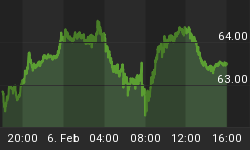Over the past few decades while the economic power of the Chinese has grown exponentially, many observers have been surprised by the relative willingness of China to operate within the financial and economic framework established by the dominant Western order. But it should now be blatantly clear that Beijing prefers to act slowly, deliberately and quietly to advance its agenda. This is the case with the establishment of the Asian Infrastructure Investment Bank (AIIB), a Chinese-led lending institution which could emerge as an international rival to the World Bank and the International Monetary Fund. Such an institution could support Beijing's political interests by controlling the flow of infrastructure financing that is vital for developing economies. As we all know, money can often buy loyalty.
Currently the regional infrastructure lending in Asia is led by the Asian Development Bank (ADB), modeled after the U.S.-dominated World Bank. Founded in the 1960s and headquartered in the Philippines, the ADB is headed by a Japanese appointee who enjoys the support of a 25% U.S./Japanese block vote, dwarfing China's 6 percent. But according to 2013 figures from the World Bank, and excluding the European Union's GDP of $17.5 trillion, China's GDP, at $9.2 trillion, now is second only to that of the U.S. with $16.8 trillion. It should have been clear that China would not accept such relegation indefinitely.
In October of last year China and India led 19 other Asian and Middle Eastern nations in the formation of the AIIB, which was initially capitalized with more than $50 billion. The United States, angry at what it perceived as a clear threat to its domination, supported by European and Japanese interests, leaned heavily on its allies not to join. Notably absent from the AIIB launch celebrations were the important Asian nations of Australia, Japan and South Korea, all very close allies of the U.S. However, once China decided to yield veto power, some Western interests appear to have reconsidered their opposition.
The big blow came in mid-March when the United Kingdom (despite its 'special relationship' with the United States) decided to join. This in turn encouraged other powerful EU nations, including Germany, France and Italy, to jump in as well. On March 26th, even South Korea joined, bringing the total AIIB membership to 37 nations, including 9 non-regional countries. This clear move to support China's campaign for greater regional power left the United States notably isolated. In response to the decision from London to lend its support, a US government official told the Financial Times, "We are wary about a trend toward constant accommodation of China, which is not the best way to engage a rising power."
The strength of support for the AIIB could be another step towards the 'de-dollarization' that many expect to be the endgame of Chinese economic policy. The loss of the U.S. dollar's coveted position as the international reserve currency would be a direct threat to America's ability effectively to set world interest rates and to create seemingly limitless fiat dollars without the need to finance them in free markets. The AIIB represents one more indication that the 'old' order of dollar hegemony may be nearing an end to be replaced likely by a Chinese-led currency, perhaps even one linked to gold.
The ADB argues that there is an $8 trillion infrastructure gap in Asia and that investment there will yield true economic growth and wealth creation. However, the Japanese fear that China will try to tie and even annex Asian countries via a network of strategic pipelines, railways and roads. In all likelihood, China may use the newly established AIIB to do just that.
Under President Obama, America is appearing weak on many fronts, including defense and monetary affairs. Already a combination of Obama's apparently inept foreign policy has led Chancellor Merkel of Germany to take a different posture over the Ukraine, exposing a potentially damaging split in the vitally important and longstanding NATO alliance. By leaning on its allies publicly, but ultimately ineffectively, to resist China's AIIB overtures, Obama has exposed another level of increasing diplomatic and monetary weakness.
Clearly, the Obama Administration was angered by the UK's reversal. Patrick Ventrell, a spokesman for the National Security Council, told CNNMoney that the White House had "concerns" over whether the AIIB will meet "high standards, particularly related to governance, and environmental and social safeguards." He added, "This is the UK's sovereign decision. We hope and expect that the UK will use its voice to push for adoption of high standards."
In this column we have argued at length that China likely desires to replace the U.S. dollar with its own version of an international reserve currency. Doubtless, China wants to capture the massive financial and economic privileges and power that control of such a currency bestows on its host nation.
It appears that de-dollarization is progressing slowly but surely, with the formation of the AIIB being just a single but important and highly visible step in that process. If the U.S. dollar ultimately loses its reserve status, those holding dollars or assets denominated in dollars will feel the pain. Worse still, America will lose the almost total dominance over world monetary affairs she has enjoyed since Bretton Woods in 1944. As a result, the current era of extreme dollar confidence may in the future be considered a period of dangerous delusion and willful ignorance of world events.
John Browne is a Senior Economic Consultant to Euro Pacific Capital. Opinions expressed are those of the writer, and may or may not reflect those held by Euro Pacific Capital, or its CEO, Peter Schiff.
Subscribe to Euro Pacific's Weekly Digest: Receive all commentaries by Peter Schiff, John Browne, and other Euro Pacific commentators delivered to your inbox every Monday!
Order a copy of Peter Schiff's updated illustrated economic parable he co-wrote with his brother Andrew, How an Economy Grows and Why It Crashes - Collector's Edition, and save yourself 32%!















